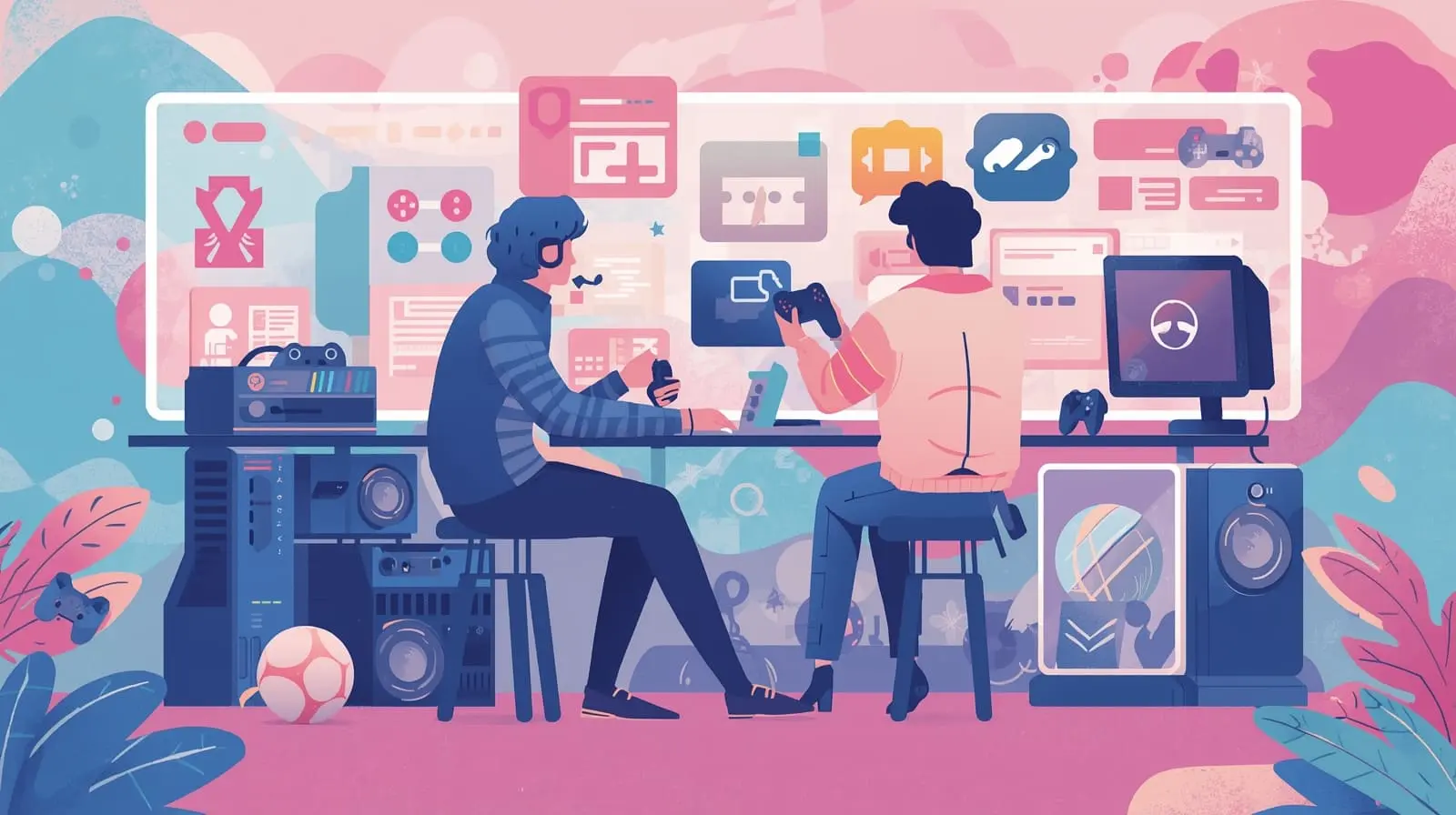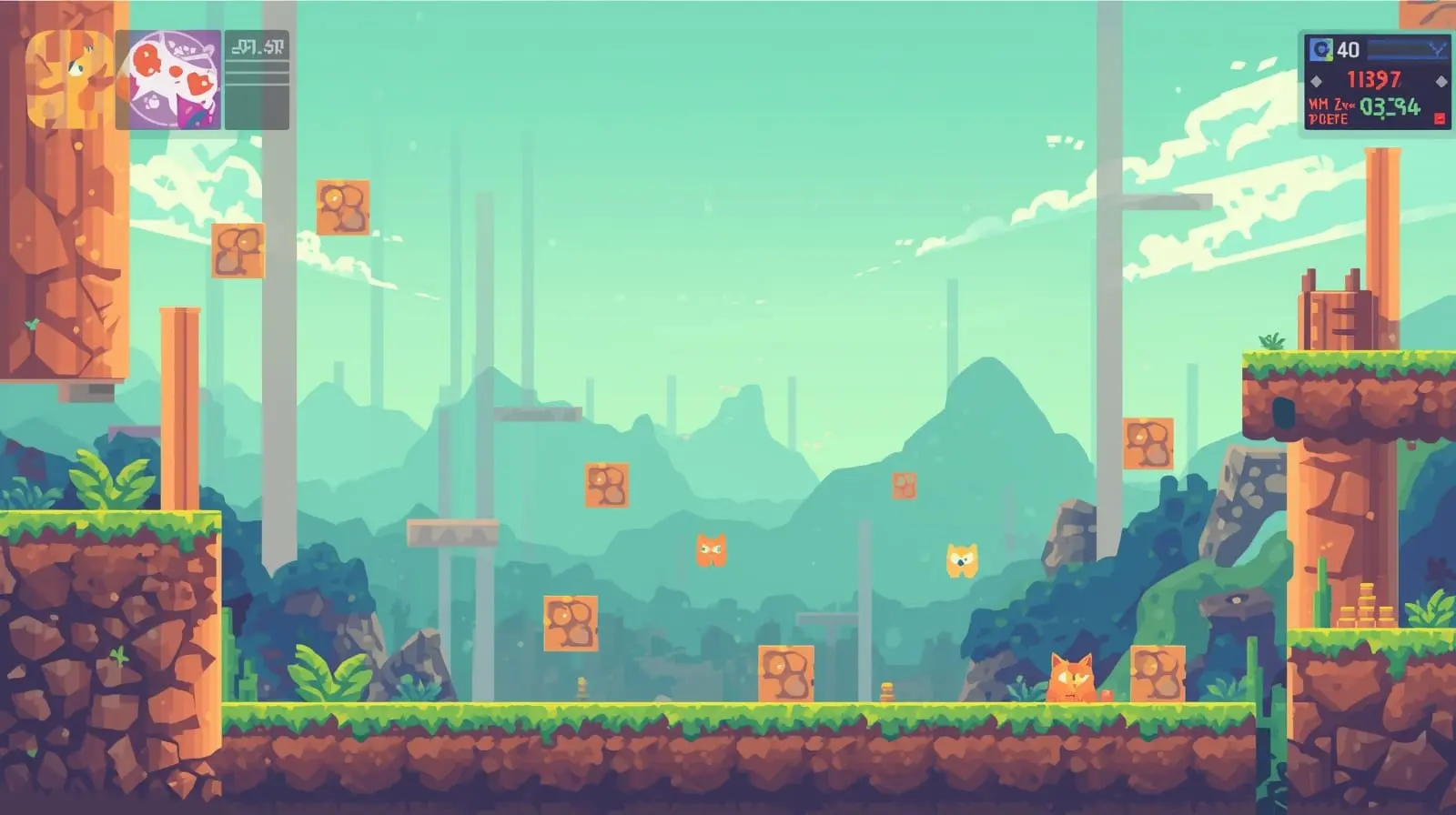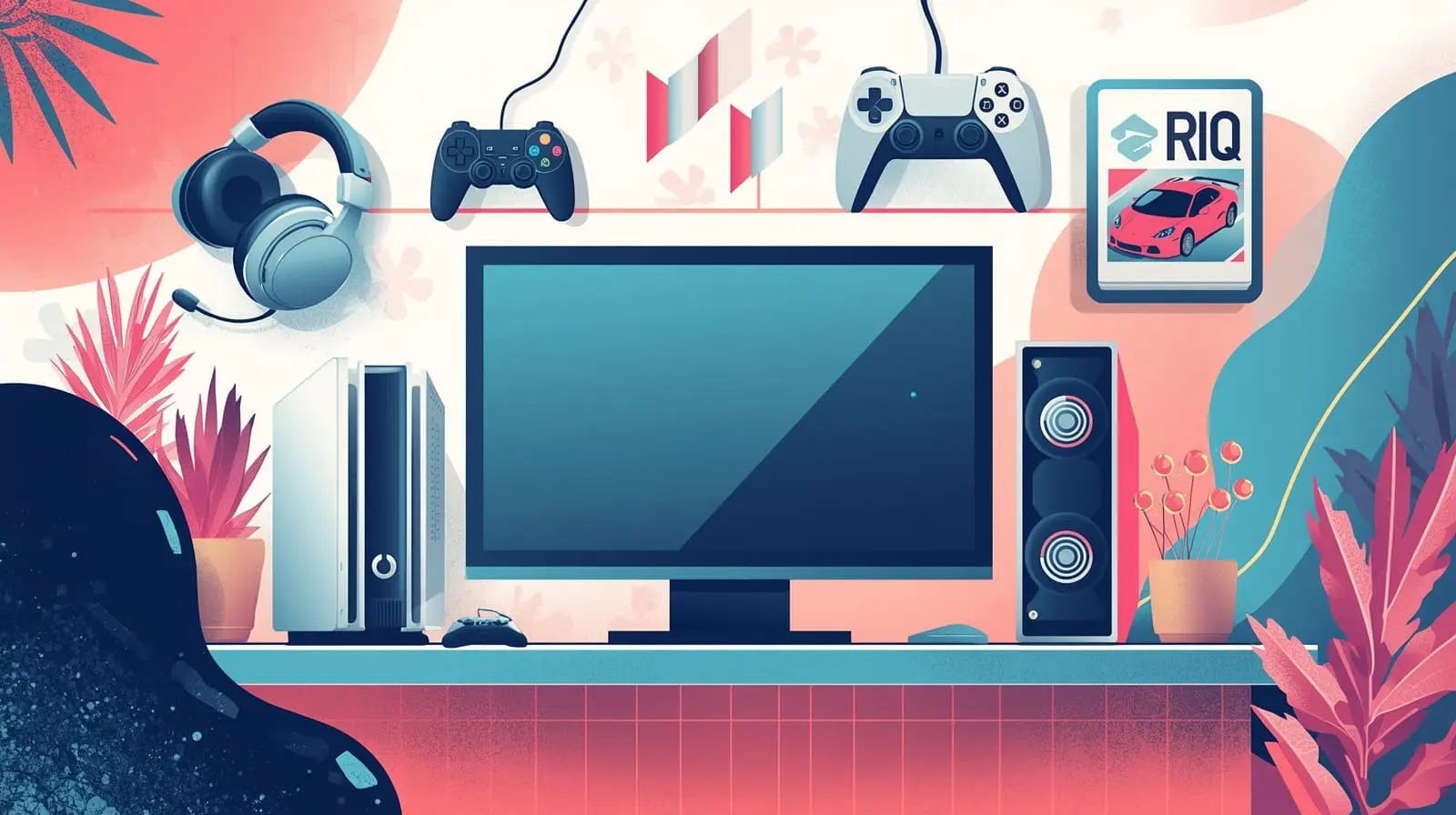
Are Multiplayer Games Better Than Single-Player?
Explore the ultimate gaming debate: multiplayer vs single-player. Discover which experience offers more fun, replay value, community, and immersion.
October 14, 2025
5 min read
In the gaming world, one debate never seems to fade away: are multiplayer games better than single-player games? As technology advances and gaming communities grow, players are often split between the immersive, story-driven experience of single-player titles and the competitive, social nature of multiplayer modes. Each format offers unique advantages and appeals to different types of gamers. In this article, we will dive deep into the strengths and weaknesses of both, explore key factors that shape the player experience, and provide insights to help you decide which suits your gaming style best.
## The Rise of Multiplayer Gaming
Multiplayer games have grown exponentially in popularity over the past decade. Titles like **:contentReference[oaicite:0]{index=0}**, **:contentReference[oaicite:1]{index=1}**, and **:contentReference[oaicite:2]{index=2}** have redefined online interaction, connecting millions of players across the globe in real time. With the advent of high-speed internet, multiplayer gaming has evolved from simple LAN matches to global tournaments and esports leagues.
### Key Advantages of Multiplayer Games
1. **Social Interaction:** Multiplayer games foster community engagement. Players team up with friends or strangers, build alliances, and compete in exciting matches. This sense of connection adds a social layer that single-player experiences cannot fully replicate.
2. **Replay Value:** No two matches are ever the same. The unpredictable behavior of other players ensures that every session feels fresh and dynamic.
3. **Competitive Thrill:** Many gamers thrive on competition. Whether it’s climbing ranked ladders or dominating in online arenas, the adrenaline rush of multiplayer is unmatched.
4. **Regular Content Updates:** Most online games receive frequent updates, new modes, skins, and seasonal events. This keeps players engaged over the long term.
### Potential Downsides of Multiplayer Games
- **Toxicity:** Online environments can sometimes be hostile, with harassment and negative behavior from other players.
- **Dependency on Others:** Your enjoyment may depend on teammates or opponents. Bad matchmaking can lead to frustration.
- **Time Commitment:** Competitive games often require regular play to keep up with skill levels and meta shifts.
## The Enduring Strength of Single-Player Experiences
Single-player games may not offer the same competitive edge, but they excel in storytelling, immersion, and personal satisfaction. Legendary titles like **:contentReference[oaicite:3]{index=3}**, **:contentReference[oaicite:4]{index=4}**, and **:contentReference[oaicite:5]{index=5}** have set the standard for narrative-driven gameplay that leaves a lasting impression.
### Key Advantages of Single-Player Games
1. **Immersive Storytelling:** Single-player titles often feature rich narratives, well-developed characters, and emotional journeys that captivate players.
2. **Play at Your Own Pace:** There’s no need to match schedules with others or worry about lagging behind. You control your own experience.
3. **No Internet Required:** Many single-player games can be enjoyed offline, making them accessible anytime, anywhere.
4. **Creative Freedom:** Game developers can experiment with storytelling, mechanics, and art styles without needing to balance for competitive play.
### Potential Downsides of Single-Player Games
- **Limited Replayability:** Once the story is complete, some players lose motivation to revisit the game.
- **Lack of Social Interaction:** Playing alone can feel isolating for gamers who enjoy shared experiences.
- **Finite Content:** Unlike multiplayer games, updates for single-player titles may be limited or nonexistent after release.
## Comparing Core Aspects: Multiplayer vs Single-Player
| Feature | Multiplayer Games | Single-Player Games |
|---------|-------------------|----------------------|
| **Social Experience** | Strong, team-based or competitive | Minimal or none |
| **Replay Value** | High (ever-changing opponents) | Moderate (story-based) |
| **Immersion** | Shared but can be chaotic | Deep and personal |
| **Content Updates** | Frequent, seasonal | Limited, usually post-launch |
| **Skill Development** | Strategic and competitive | Personal mastery |
| **Cost Efficiency** | Often free-to-play with microtransactions | One-time purchase |
## How to Choose the Right Experience for You
The choice between multiplayer and single-player gaming depends on your preferences:
- If you value **competition**, **community**, and **constant challenges**, multiplayer is likely your best fit.
- If you prefer **rich stories**, **creative worlds**, and **independent play**, single-player titles will deliver more satisfaction.
### Actionable Tips for Gamers:
- **Mix Both Worlds:** Many modern games offer hybrid experiences, such as co-op campaigns or shared open worlds. Examples include **:contentReference[oaicite:6]{index=6}** and **:contentReference[oaicite:7]{index=7}**.
- **Consider Your Schedule:** If your time is limited, single-player may offer more flexibility.
- **Join Positive Communities:** If you lean toward multiplayer, find like-minded players or clans to improve your experience.
- **Watch Streams and Reviews:** Research games to see whether their gameplay loop suits your personal style.
## The Future of Gaming: Blurred Lines
The distinction between multiplayer and single-player experiences is becoming less defined. Many single-player games are introducing online components, while multiplayer titles are incorporating deeper narratives. For example, story-rich online RPGs and co-op campaigns provide the best of both worlds.
As technology advances with innovations like cloud gaming, virtual reality, and AI-driven experiences, gamers can expect even more personalized and immersive gameplay — regardless of the mode.
## Conclusion
Neither multiplayer nor single-player games are objectively better. Both offer unique strengths that cater to different audiences. The best choice depends on your gaming goals, lifestyle, and personal preferences. Some players find joy in competitive arenas, while others lose themselves in epic storylines.
Ultimately, the beauty of modern gaming lies in **freedom of choice**. Whether you log in to compete with friends or embark on a solo adventure, gaming will continue to be a powerful form of entertainment, creativity, and connection.
**Key Takeaway:** Embrace both formats when possible. By exploring a variety of games, you can enjoy the best of both worlds and enrich your overall gaming experience.
## The Rise of Multiplayer Gaming
Multiplayer games have grown exponentially in popularity over the past decade. Titles like **:contentReference[oaicite:0]{index=0}**, **:contentReference[oaicite:1]{index=1}**, and **:contentReference[oaicite:2]{index=2}** have redefined online interaction, connecting millions of players across the globe in real time. With the advent of high-speed internet, multiplayer gaming has evolved from simple LAN matches to global tournaments and esports leagues.
### Key Advantages of Multiplayer Games
1. **Social Interaction:** Multiplayer games foster community engagement. Players team up with friends or strangers, build alliances, and compete in exciting matches. This sense of connection adds a social layer that single-player experiences cannot fully replicate.
2. **Replay Value:** No two matches are ever the same. The unpredictable behavior of other players ensures that every session feels fresh and dynamic.
3. **Competitive Thrill:** Many gamers thrive on competition. Whether it’s climbing ranked ladders or dominating in online arenas, the adrenaline rush of multiplayer is unmatched.
4. **Regular Content Updates:** Most online games receive frequent updates, new modes, skins, and seasonal events. This keeps players engaged over the long term.
### Potential Downsides of Multiplayer Games
- **Toxicity:** Online environments can sometimes be hostile, with harassment and negative behavior from other players.
- **Dependency on Others:** Your enjoyment may depend on teammates or opponents. Bad matchmaking can lead to frustration.
- **Time Commitment:** Competitive games often require regular play to keep up with skill levels and meta shifts.
## The Enduring Strength of Single-Player Experiences
Single-player games may not offer the same competitive edge, but they excel in storytelling, immersion, and personal satisfaction. Legendary titles like **:contentReference[oaicite:3]{index=3}**, **:contentReference[oaicite:4]{index=4}**, and **:contentReference[oaicite:5]{index=5}** have set the standard for narrative-driven gameplay that leaves a lasting impression.
### Key Advantages of Single-Player Games
1. **Immersive Storytelling:** Single-player titles often feature rich narratives, well-developed characters, and emotional journeys that captivate players.
2. **Play at Your Own Pace:** There’s no need to match schedules with others or worry about lagging behind. You control your own experience.
3. **No Internet Required:** Many single-player games can be enjoyed offline, making them accessible anytime, anywhere.
4. **Creative Freedom:** Game developers can experiment with storytelling, mechanics, and art styles without needing to balance for competitive play.
### Potential Downsides of Single-Player Games
- **Limited Replayability:** Once the story is complete, some players lose motivation to revisit the game.
- **Lack of Social Interaction:** Playing alone can feel isolating for gamers who enjoy shared experiences.
- **Finite Content:** Unlike multiplayer games, updates for single-player titles may be limited or nonexistent after release.
## Comparing Core Aspects: Multiplayer vs Single-Player
| Feature | Multiplayer Games | Single-Player Games |
|---------|-------------------|----------------------|
| **Social Experience** | Strong, team-based or competitive | Minimal or none |
| **Replay Value** | High (ever-changing opponents) | Moderate (story-based) |
| **Immersion** | Shared but can be chaotic | Deep and personal |
| **Content Updates** | Frequent, seasonal | Limited, usually post-launch |
| **Skill Development** | Strategic and competitive | Personal mastery |
| **Cost Efficiency** | Often free-to-play with microtransactions | One-time purchase |
## How to Choose the Right Experience for You
The choice between multiplayer and single-player gaming depends on your preferences:
- If you value **competition**, **community**, and **constant challenges**, multiplayer is likely your best fit.
- If you prefer **rich stories**, **creative worlds**, and **independent play**, single-player titles will deliver more satisfaction.
### Actionable Tips for Gamers:
- **Mix Both Worlds:** Many modern games offer hybrid experiences, such as co-op campaigns or shared open worlds. Examples include **:contentReference[oaicite:6]{index=6}** and **:contentReference[oaicite:7]{index=7}**.
- **Consider Your Schedule:** If your time is limited, single-player may offer more flexibility.
- **Join Positive Communities:** If you lean toward multiplayer, find like-minded players or clans to improve your experience.
- **Watch Streams and Reviews:** Research games to see whether their gameplay loop suits your personal style.
## The Future of Gaming: Blurred Lines
The distinction between multiplayer and single-player experiences is becoming less defined. Many single-player games are introducing online components, while multiplayer titles are incorporating deeper narratives. For example, story-rich online RPGs and co-op campaigns provide the best of both worlds.
As technology advances with innovations like cloud gaming, virtual reality, and AI-driven experiences, gamers can expect even more personalized and immersive gameplay — regardless of the mode.
## Conclusion
Neither multiplayer nor single-player games are objectively better. Both offer unique strengths that cater to different audiences. The best choice depends on your gaming goals, lifestyle, and personal preferences. Some players find joy in competitive arenas, while others lose themselves in epic storylines.
Ultimately, the beauty of modern gaming lies in **freedom of choice**. Whether you log in to compete with friends or embark on a solo adventure, gaming will continue to be a powerful form of entertainment, creativity, and connection.
**Key Takeaway:** Embrace both formats when possible. By exploring a variety of games, you can enjoy the best of both worlds and enrich your overall gaming experience.
Published: October 14, 2025
Share this article:


